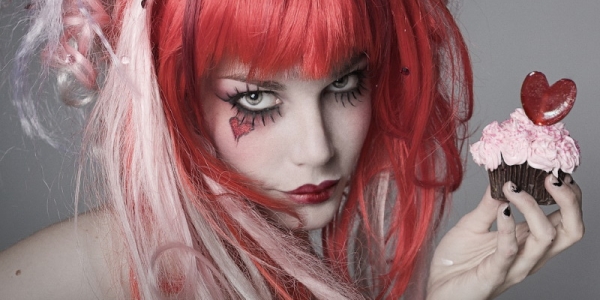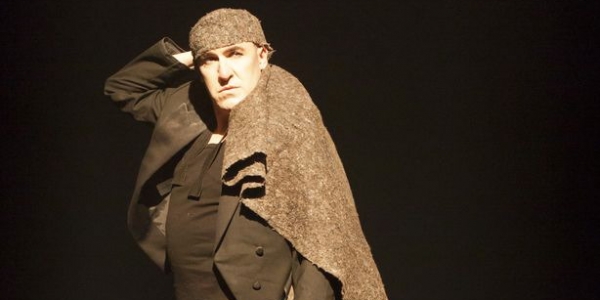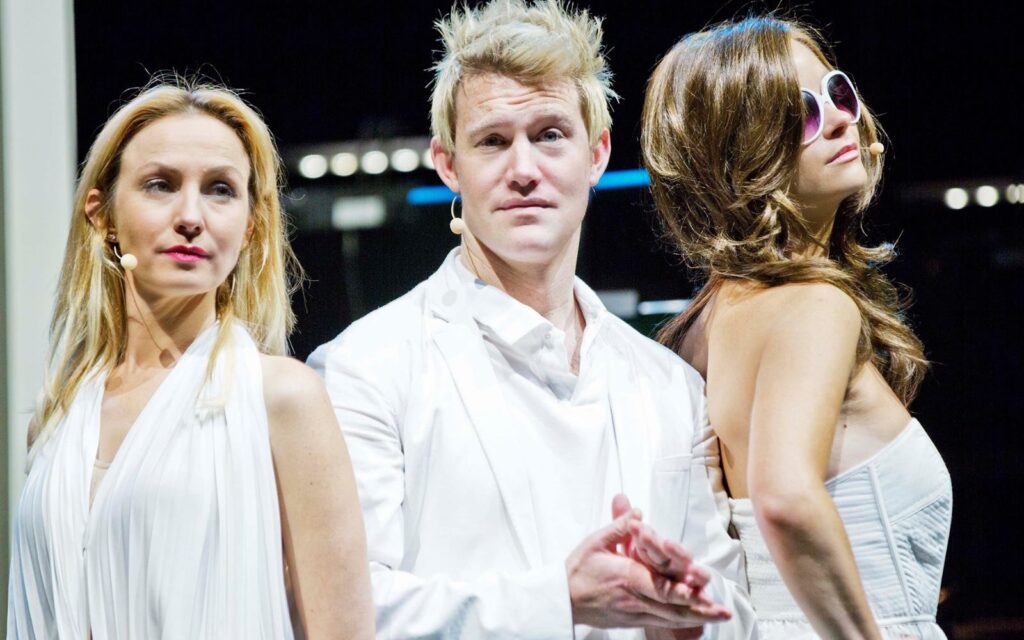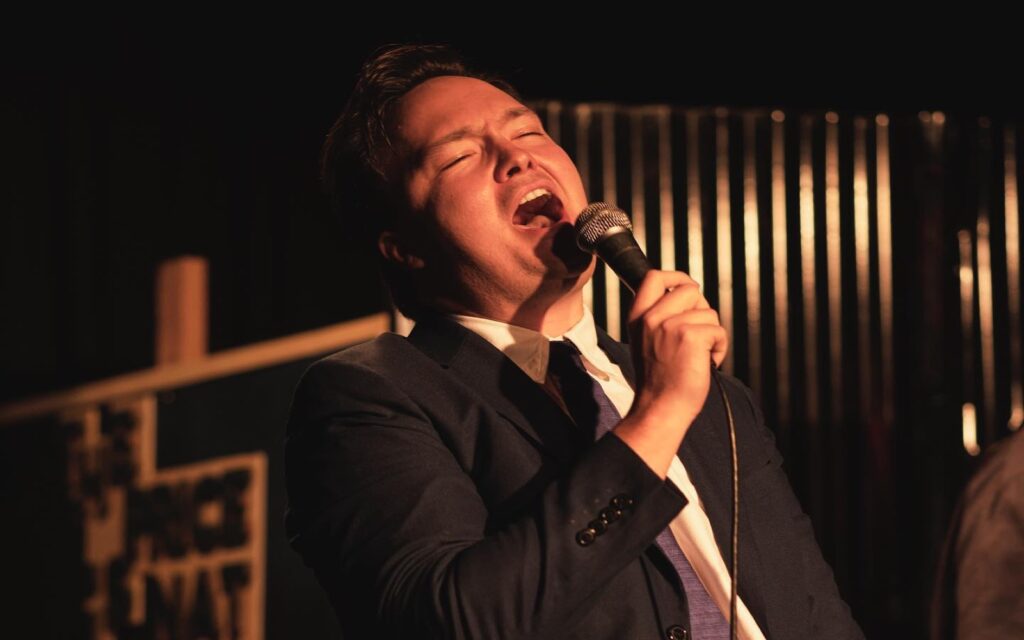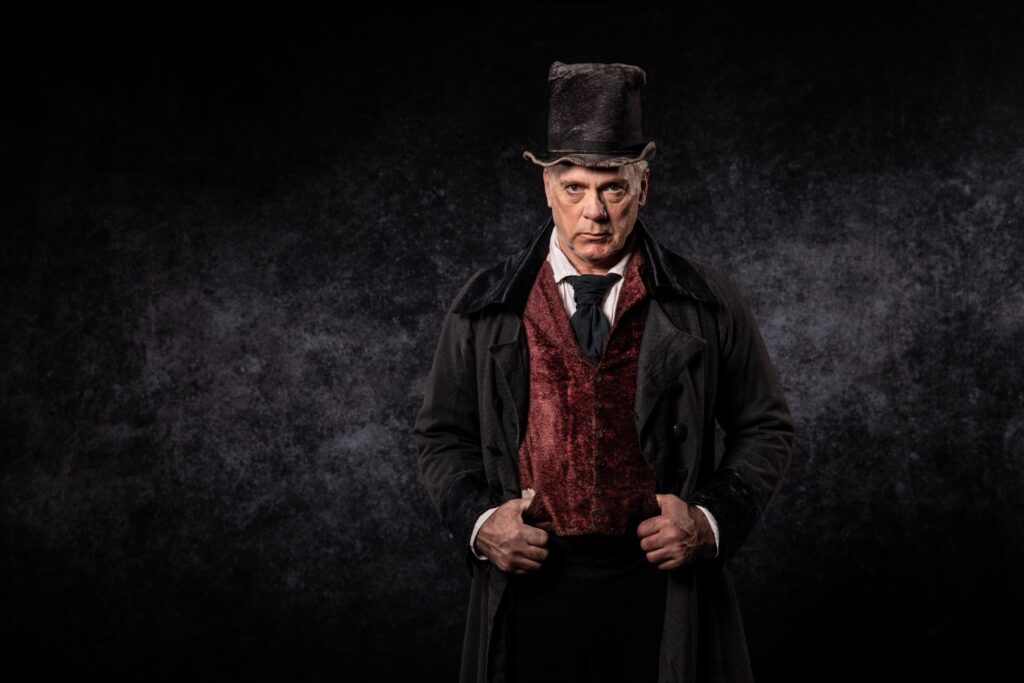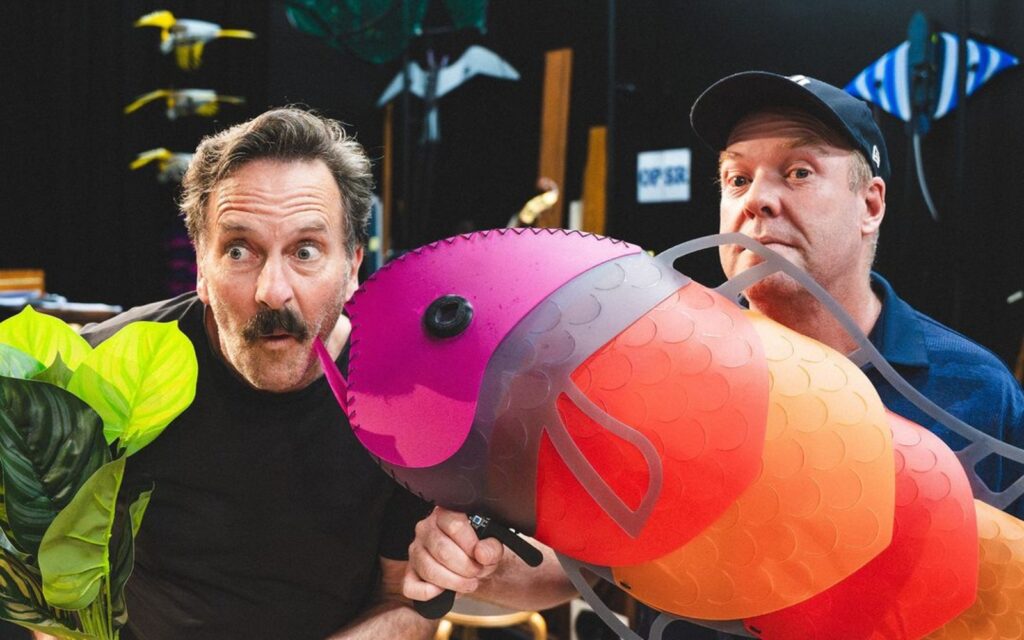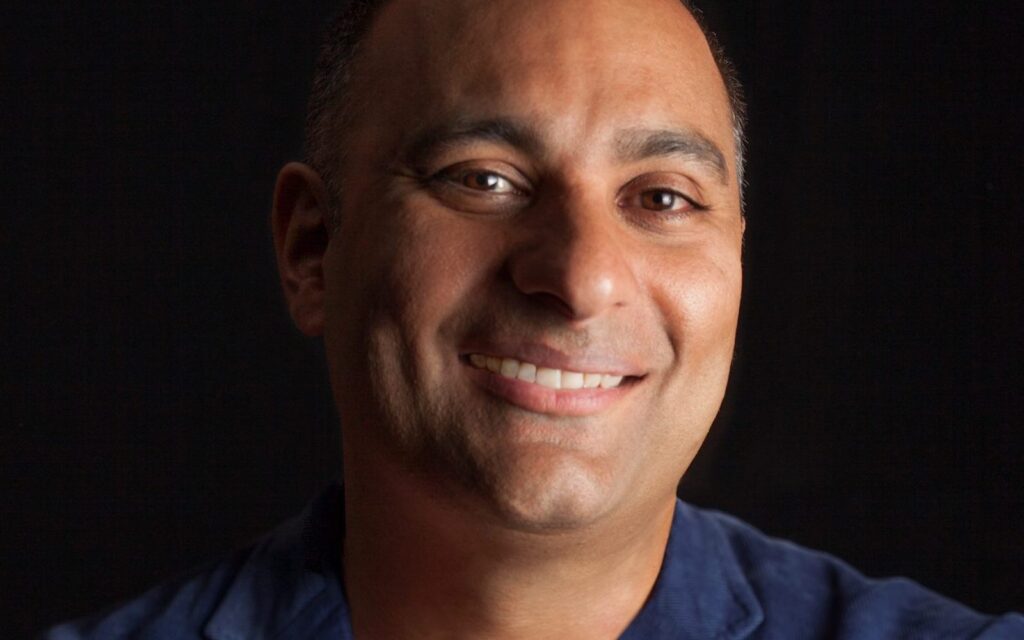The Scavenger, Autumn tells me, is inspired by Jim Henson’s creatures – especially those from the twisted world of The Dark Crystal, a movie she loved growing up. “That’s still my all-time favourite on the face of the planet!” she says. “Growing up with Jim Henson’s vision really affected me. I owe an awful lot to him, and I think that in terms of my visual sensibility and style, a lot of it comes directly from seeing The Dark Crystal at the age of five, and having my mind totally blown. The Scavenger’s look is based on the Skeksis, the bad guys from that movie.” I ask if we’ll be seeing The Scavenger at Autumn’s Australian shows, and she promises we will. “The whole show is completely different and completely new. It’s a bridge between the shows we’ve done previously and the Broadway-style musical that it will hopefully become. That’s the ultimate goal, and that is in the works right now … the show is the last thing before the musical actually happens.”
These days, it seems, young musicians are unafraid to own up to their love of musical theatre and its influence on their work. Autumn is a life-long devotee of the genre. “The musical has been embraced by the current generation,” she says. “I mean, look at Les Mis. I’ve seen the musical four times; I think it’s the best thing on the face of the planet, and now others do too. I think that’s great in creating an audience and a culture for the kind of musical that I want to write.” Of any musical out there, Autumn connects the most with Les Mierables. “It shows the depth of human character, and has this incredible moral centre,” she says. “That shaped me in a massive way, and I’m not ashamed or afraid to admit the influence of musicals in everything I do, the influence of the great writers and great people that put on these productions before me …”
I mention to Autumn that when I was a younger, instead of practicing the piano pieces that I was meant to, I would usually goof off and play the score from Les Mis instead, and she explodes in laughter. “Oh my god, I did the same exact fucking thing!” she says. “Kindred spirits! I’m not a trained pianist, but growing up, I was supposed to take piano lessons to supplement my violin, but instead, I’d play pieces from the score books of Les Mis and Phantom, because I just fucking loved them. That was probably the first example of my rebellious streak coming through. I’d play those pieces instead of scales and things that I didn’t really care about.” As for a favourite song, she picks Stars. “It’s an amazing piece of music,” she says, “and yet, at the same time, you’re being let into the psychosis of this character who is so obsessed with pursuing an essentially innocent man and proving his guilt that it becomes his life’s purpose.”
The song, for those who haven’t seen the musical, is performed by the policeman Javert, about his life-long pursuit of the escaped convict Jean Valjean. In part, Autumn is drawn to the song because she sees parallels between Javert’s determined outlook and her own. The stars in the song represent certainty, something for which she constantly strives. “I’ve always been afraid of change, ever since I was small,” she says. “All the good things that have happened to me, all the big changes, have been happy accidents rather than things I’ve sought out. I thought I wanted to be a classical violinist, but I ended up on another path. My god, if I’d stuck with the original plan, I wouldn’t have my fans, otherwise known as my Plague Rats, I wouldn’t tour the world dressing up in monster costumes…What I’m creating and the audience that I have are so much more incredible than anything I could have hoped.”
Autumn puts an awful lot of herself into her music and lyrics, but wouldn’t have it any other way. “Music can be very powerful in reminding you that you’re not the only one who thinks a certain way, or who has experienced certain things, and I think I connect with people on that level,” she says. “I respect the audience that I have – they’re rare and creative and wonderful, and I want to keep them for a very long time.”
BY ALASDAIR DUNCAN
